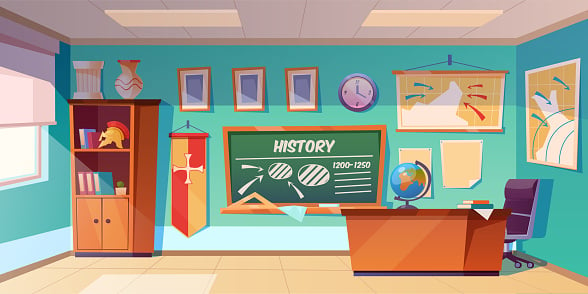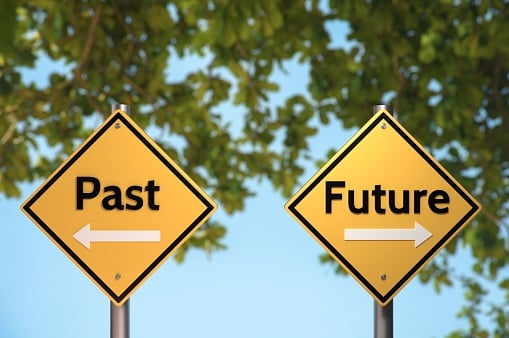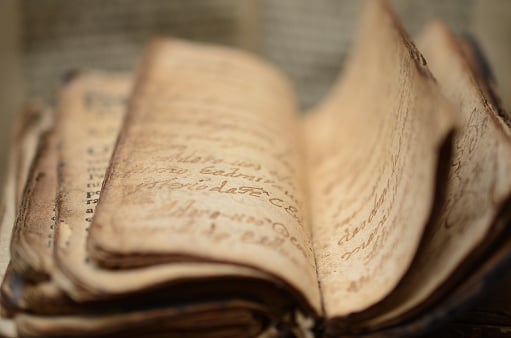
Why Is It Important to Study History?
Even if you live to be 100, you’ll never run out of new things to learn. From computer science and cryptocurrency to French literature and Spanish grammar, the world is full of knowledge and it’s all at your fingertips. So, why choose history?
Many people study history in high school and come away thinking it’s boring, irrelevant, or both. But as we get older, even just by a few years, we start to see the importance of understanding the past.
Why do we study history?

We study history because history doesn’t stay behind us. Studying history helps us understand how events in the past made things the way they are today. With lessons from the past, we not only learn about ourselves and how we came to be, but also develop the ability to avoid mistakes and create better paths for our societies.
How does history impact our lives today?
Events in the past have displaced families and groups, changing the makeup of regions and often causing tensions. Such events have also created government systems that have lasted generations beyond when they started. And all of it affects each person alive today.
Take the Great Depression, for example—one of the most difficult but impactful periods in American history. The economic crisis put almost 15 million people out of work and sent countless families into homelessness, stealing their sense of security. Many of those people would feel insecure for the rest of their lives.
The government had to learn how to help. This effort gave rise to Social Security, federal emergency relief programs, and funding for unemployment efforts. These changes continue to make life more secure for millions of Americans.
Society today comes from hundreds and thousands of actions like these. The more you learn about how these things happened, the better you understand real life.
What lessons can we learn from history?
History teaches us about things such as:
- Why some societies thrive while others fail.
- Why humans have gone to war.
- How people have changed society for the better.
History isn’t a study of others. The people you learn about may have lived decades or even centuries ago, but their actions directly affect how we live our lives today. Events that seem like dates on a page have been turning points in the story of our societies.
“Historical knowledge is no more and no less than carefully and critically constructed collective memory.” -William H. MacNeill, former president of the American Historical Association
Historical research builds and codifies these stories. When we study history, we learn how we got where we are, and why we live the way we do. It’s the study of us—of humans and our place in an ever changing world. Without it, we wouldn’t understand all of our triumphs and failures, and we would continually repeat patterns without building forward to something better.
As Spanish philosopher George Santayana once said, “Those who cannot remember the past are doomed to repeat it.”
How do past events help us understand the present?

The past creates the present. Our modern world exists because of events that happened long before our time. Only by understanding those events can we know how we got here, and where to go next.
1. History helps us understand change
History is full of transitions that have altered the world’s story. When you build your knowledge of history, you understand more about what created our present-day society.
Studying the American civil rights movement shows you how people organize successfully against oppressive systems. Learning about the fall of Rome teaches you that even the most powerful society can fall apart—and what happens to cause that crumbling.
By learning about different eras and their respective events, you start to see what changes might happen in the future and what would drive that change.
2. We learn from past mistakes
History gives us a better understanding of the world and how it operates. When you study a war, you learn more about how conflict escalates. You learn what dilemmas world leaders face and how they respond—and when those decisions lead to better or worse outcomes.
Historical study shows you the warning signs of many kinds of disaster, from genocide to climate inaction. Understanding these patterns will make you a more informed citizen and help you take action effectively.
3. We gain context for the human experience
Before 2020, most Americans hadn’t lived through a global pandemic. The 1918-1919 flu pandemic had faded from the popular picture of history, overshadowed by World War I on its back end and the Roaring 20s that followed.
Yet within months of COVID-19 entering the public awareness, historians and informed private citizens were writing about the flu pandemic again. Stories of a deadly second wave were re-told to warn people against the dangers of travel, and pictures of ancestors in masks re-emerged.
Through study of the past, we understand our own lives better. We see patterns as they re-emerge and take solace in the fact that others have gone through similar struggles
How do we study history?

There are many ways of studying and teaching history. Many people remember high school classes full of memorization—names, dates, and places of major historical events.
Decades ago, that kind of rote learning was important, but things have changed. Today, 60% of the world’s population and 90% of the U.S. population use the internet and can find those facts on demand. Today, learning history is about making connections and understanding not just what happened, but why.
Critical thinking
If you’ve ever served on a jury or read about a court case, you know that reconstructing the facts of the past isn’t a simple process. You have to consider the facts at hand, look at how they’re connected, and draw reasonable conclusions.
Take the fall of Rome, for example. In the Roman Empire’s last years, the central government was unstable yet the empire continued to spend money on expansion. Outside groups like the Huns and Saxons capitalized on that instability and invaded. The empire had split into East and West, further breaking down a sense of unity, and Christianity was replacing the Roman polytheistic religion.
When you become a student of history, you learn how to process facts like these and consider how one event affected the other. An expanding empire is harder to control, and invasions further tax resources. But what caused that instability in the first place? And why did expansion remain so important?
Once you learn how to think this way and ask these kinds of questions, you start engaging more actively with the world around you.
Finding the “So what?”
The study of history is fascinating, but that’s not the only reason why we do it. Learning the facts and following the thread of a story is just the first step.
The most important question in history is “So what?”.
For instance:
- Why were the Chinese so successful in maintaining their empire in Asia? Why did that change after the Industrial Revolution?
- Why was the invasion of Normandy in 1944 a turning point? What would happen if Allied forces hadn’t landed on French beaches?
Studying this way helps you see the relevance and importance of history, while giving you a deeper and more lasting understanding of what happened.
Where can I study history online?

The quality of your history education matters. You can read about major historical events on hundreds of websites and through YouTube videos, but it’s hard to know if you’re getting the full story. Many secondary sources are hit-or-miss when it comes to quality history teaching.
It’s best to learn history from a reputable educational institution. edX has history courses from some of the world’s top universities including Harvard, Columbia, and Tel Aviv. Explore one-topic in depth or take an overview approach—it’s completely up to you. The whole world is at your fingertips.
